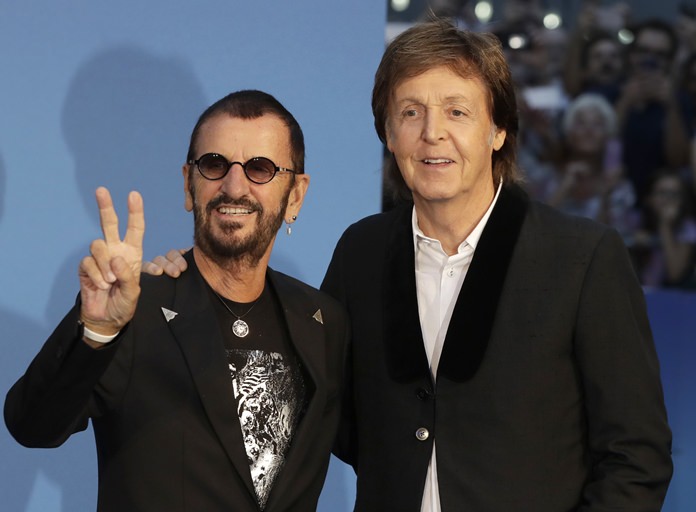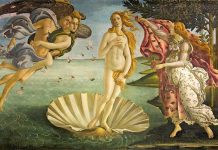London (AP) — Music aside, the true power of The Beatles wasn’t the volume of their fans or the popularity of their hairstyles — it was the pull of their politics.

The band’s refusal to play to segregated American audiences in 1964 is one striking example explored in a new documentary about the band’s tireless years on the road in the 1960s before Beatlemania forced them to stop performing live.
Director Ron Howard mined archival footage to reveal the Fab Four’s shock at being asked to perform for a separated crowd for the film “The Beatles: Eight Days A Week — The Touring Years .” The movie is now out in theaters in the United States and the U.K.
“We were kind of quite intelligent guys, looking at the political scene and, coming from Liverpool, we played with black bands and black people in the audience. It didn’t matter to us,” McCartney said.
“We played Jacksonville (Florida) and we heard that the whites and the blacks were going to be segregated and we just went, ‘Whoa, no. No way,’” he said. “And we actually forced them then, which is very early on in the 60’s, to integrate. We actually even put (it) in the contract.”
McCartney and Ringo Starr reflected on their impact and the band’s overwhelming success during an interview last week in Studio Two at Abbey Road Studio, where The Beatles recorded their catalog.
“When we first of all came in that door, as young kids … we weren’t even allowed up in the control room,” McCartney said. “That was for the grown-ups. So we grew up here.”
“We all thought, ‘Wow, we can make a record,’” Starr said. “That was the biggest deal in life at the time. And we kept coming back and we made some really great music.”
The movie focuses on the years The Beatles played live from June 1962 until August 1966, which saw them performing 815 times in 15 countries.
Eventually the uncontrollable, hysterical crowds of Beatlemania made touring impossible.
“It’s funny to say how it felt because it was so crazy,” McCartney said. “We wanted to be famous. We wanted to do well. We were doing what we really wanted to achieve and it was getting better and better.”
“But it got out of hand and the story is that, in the end, it kind of forced us off the road so we had to come back to this studio and make ‘Sgt. Pepper’s Lonely Hearts Club Band,’” he said.
Those who saw The Beatles live probably didn’t hear them as sound systems at the time couldn’t outplay screaming fans.
The movie features re-mastered music so audiences can actually hear the performances. A companion album, “The Beatles: Live At The Hollywood Bowl,” has also been released.
Now, the guys on stage can finally listen to what they were playing.




